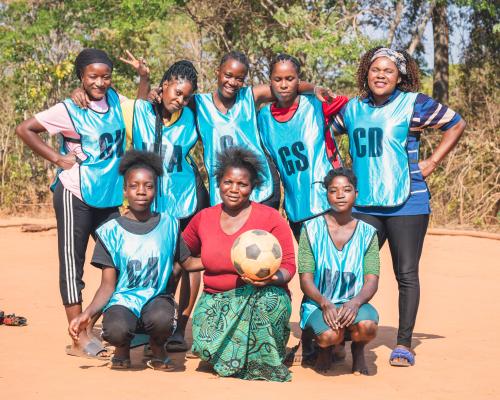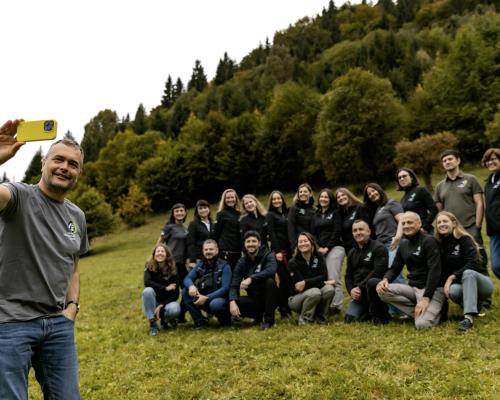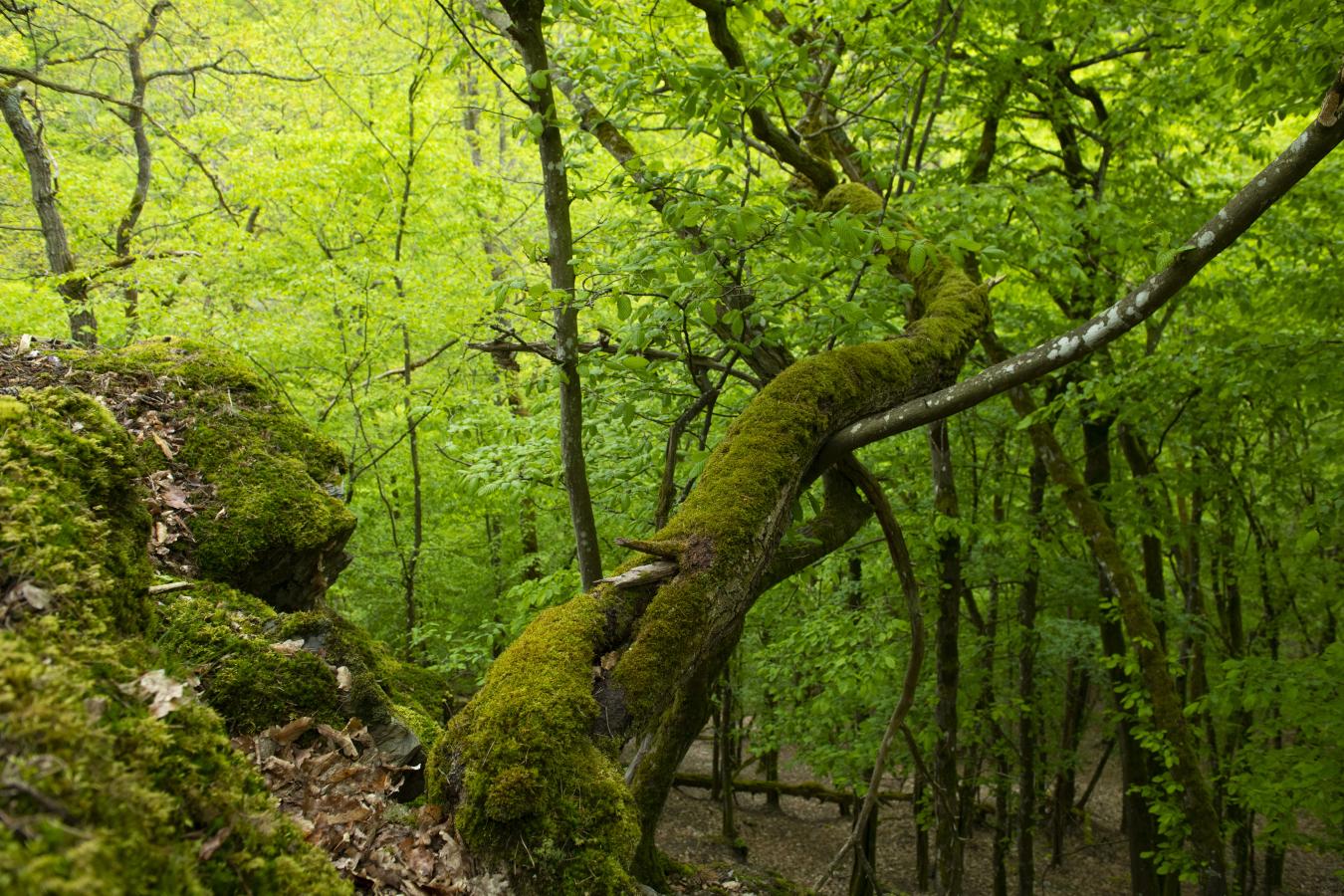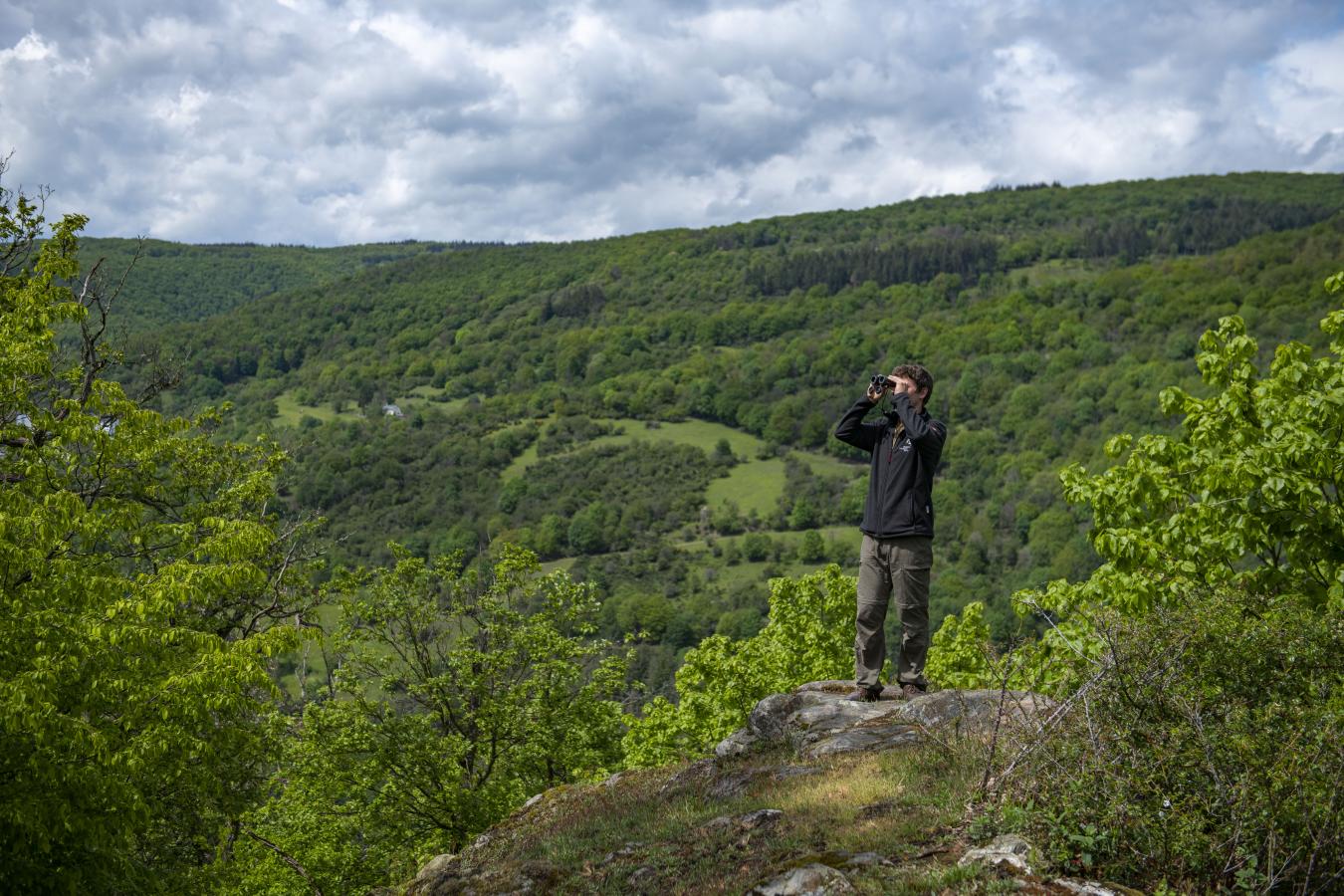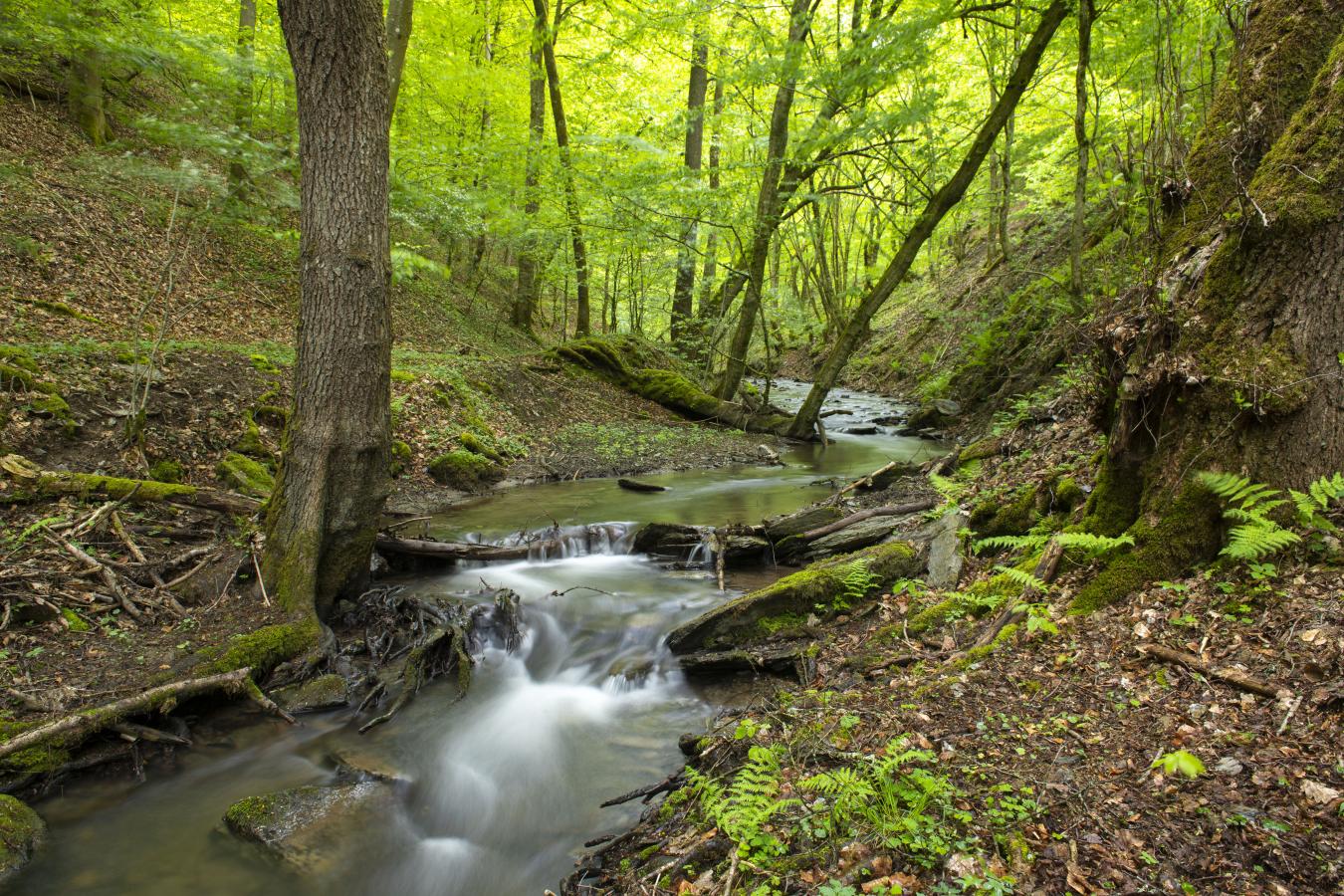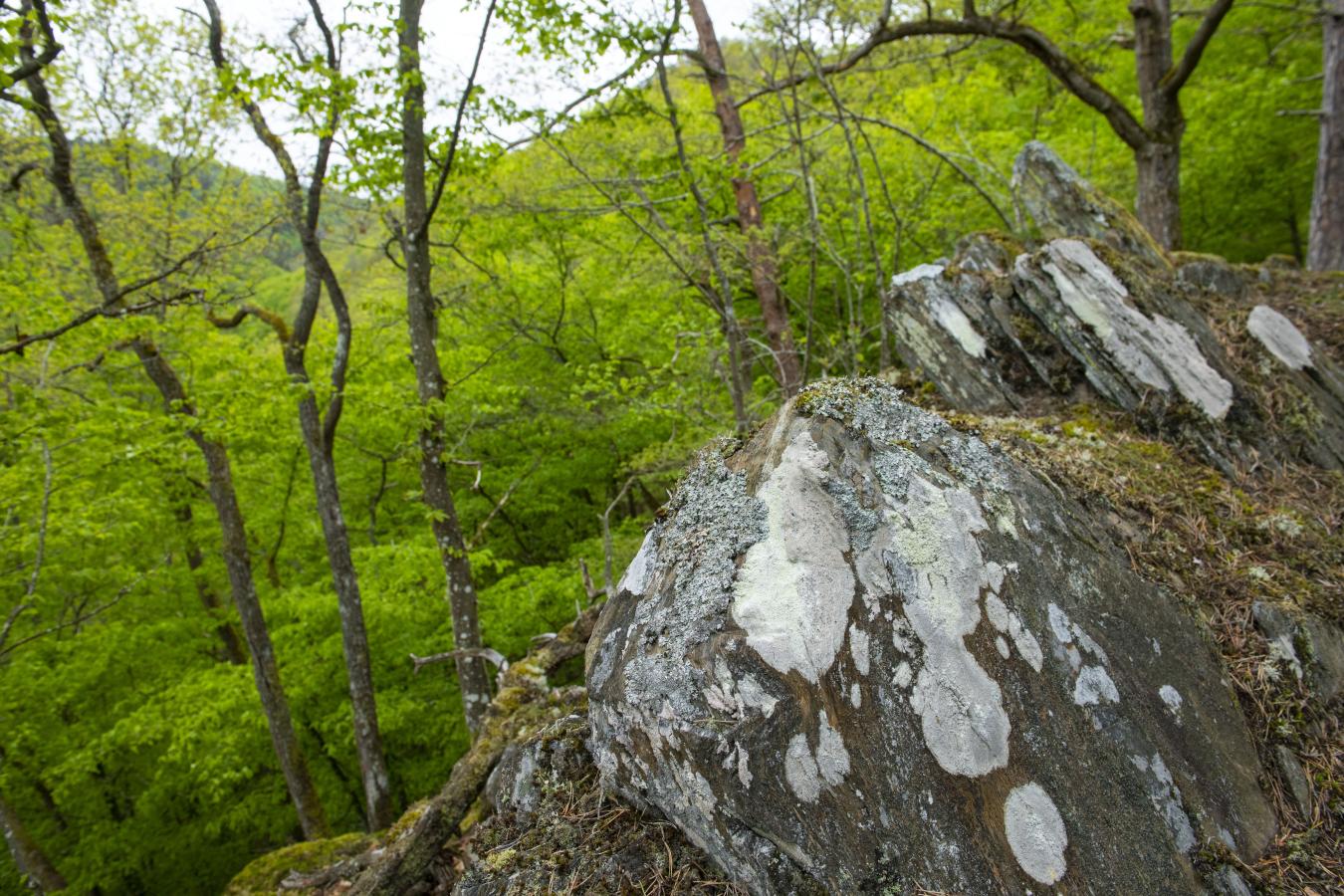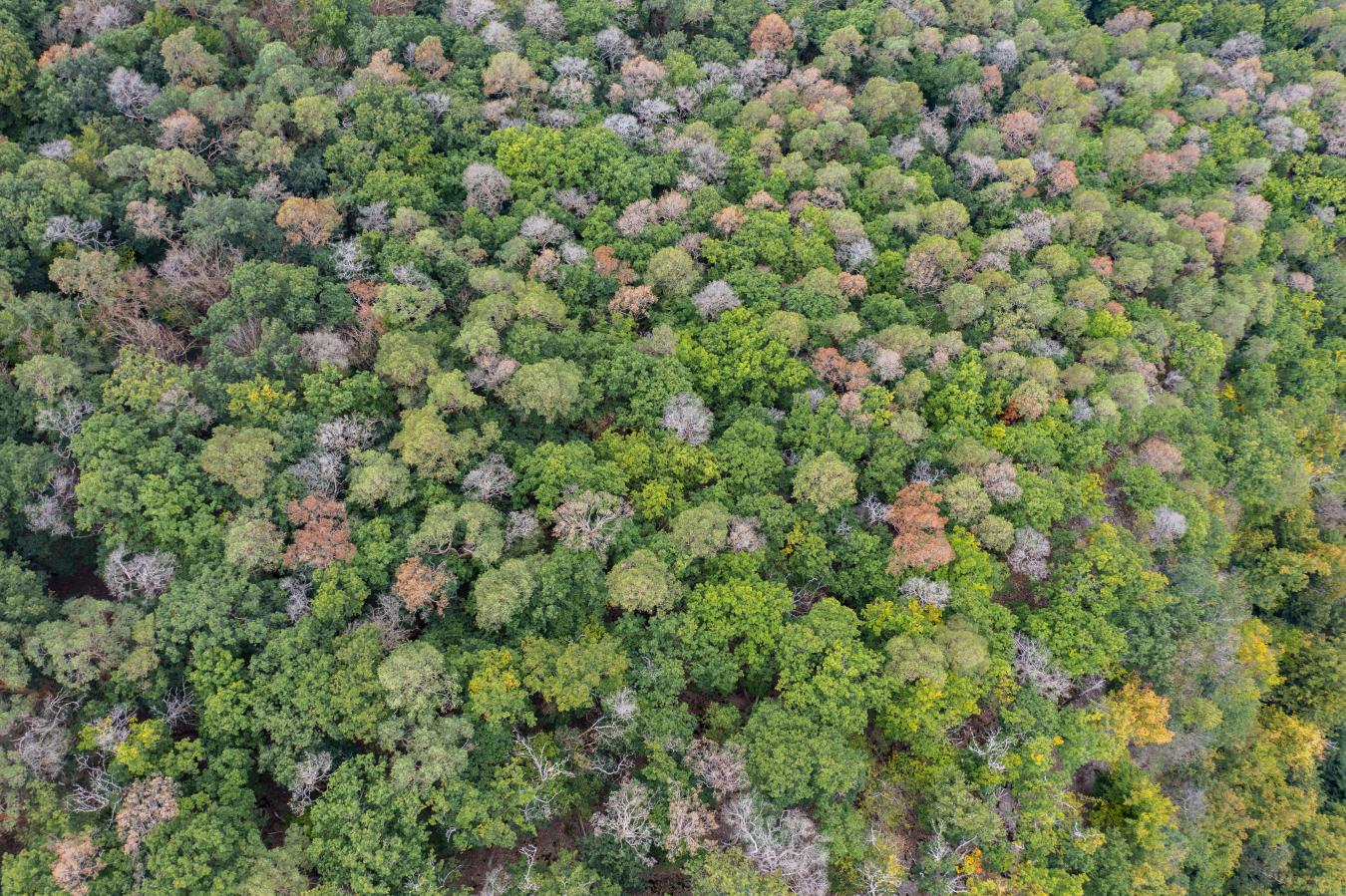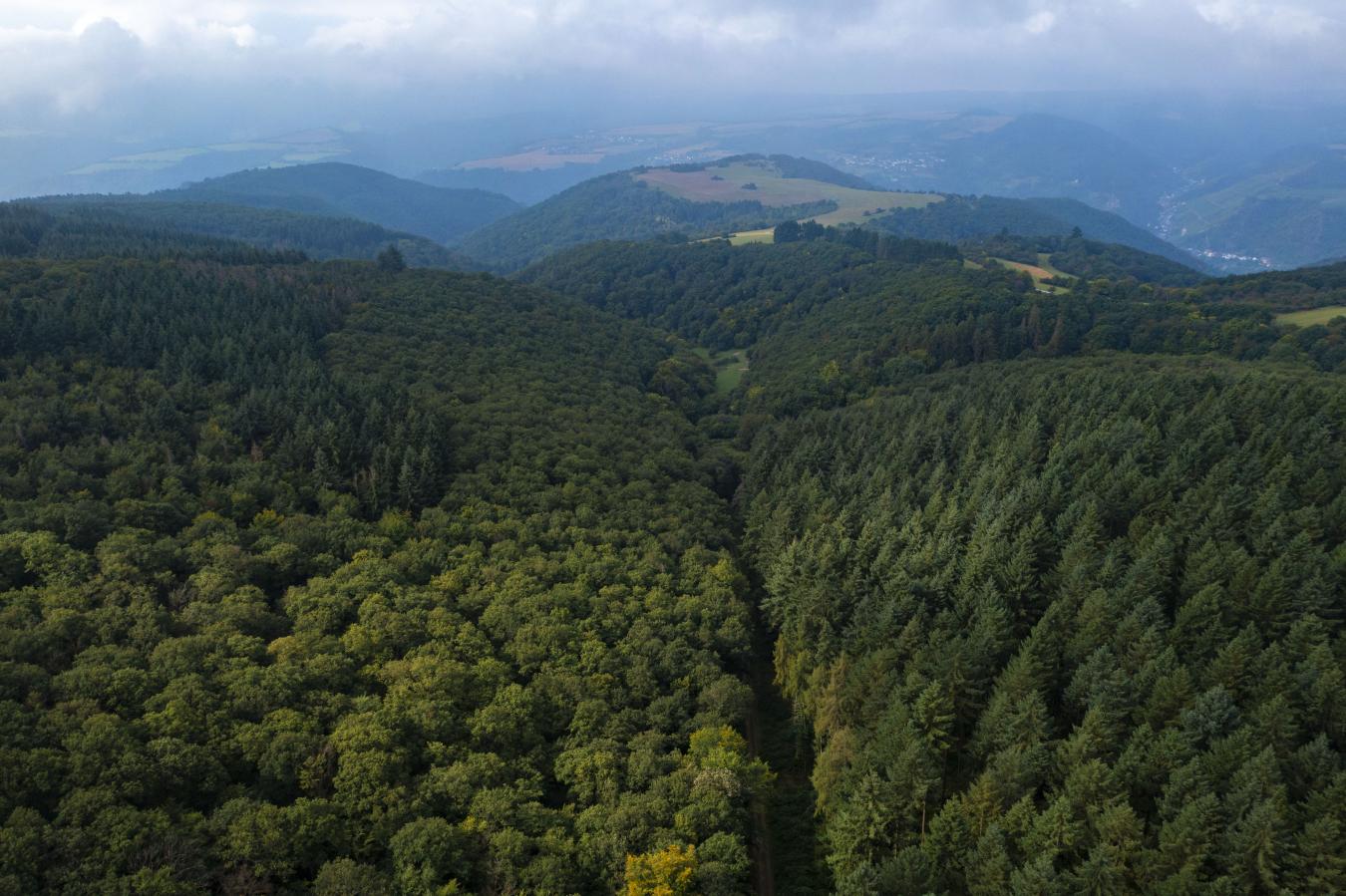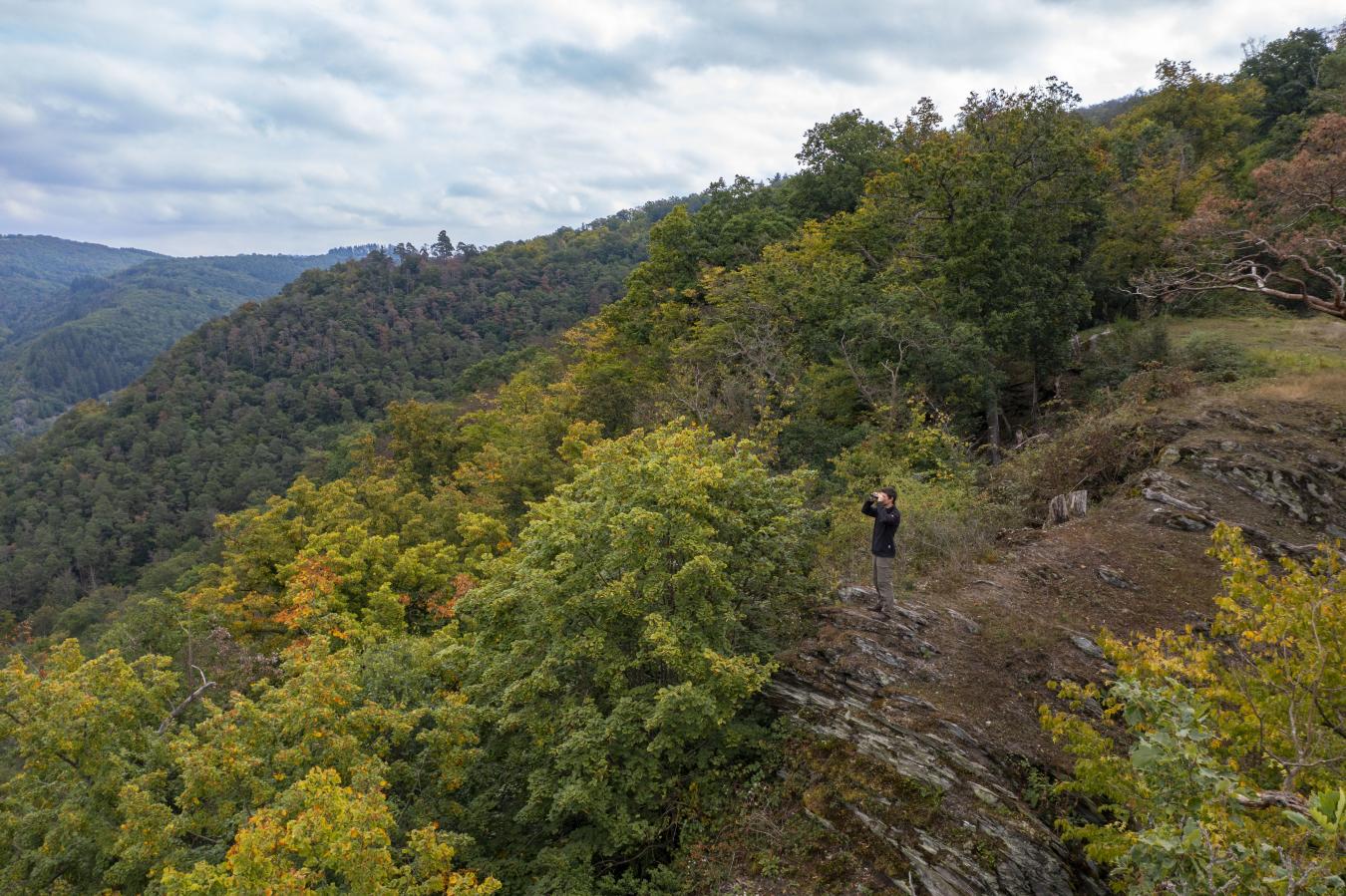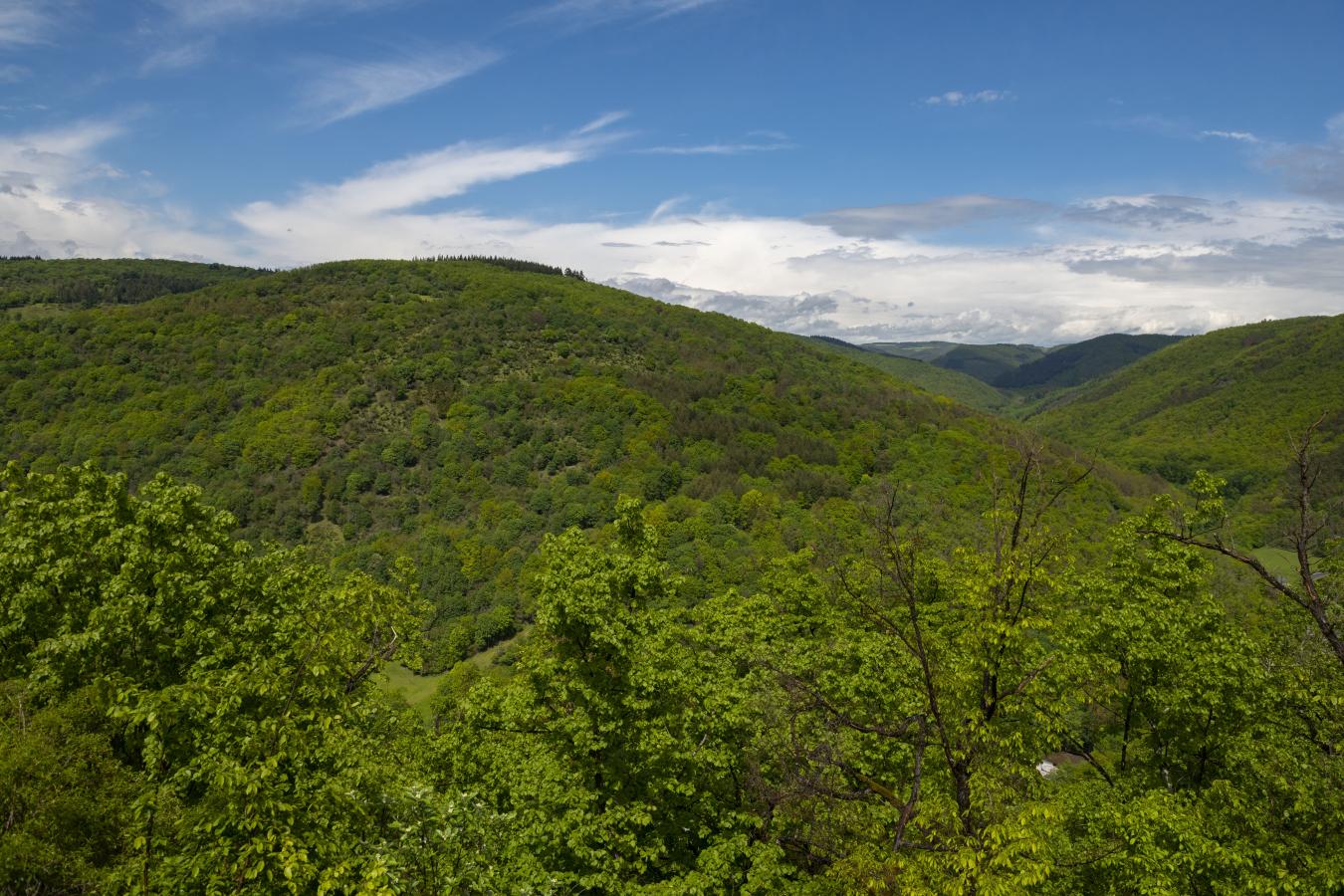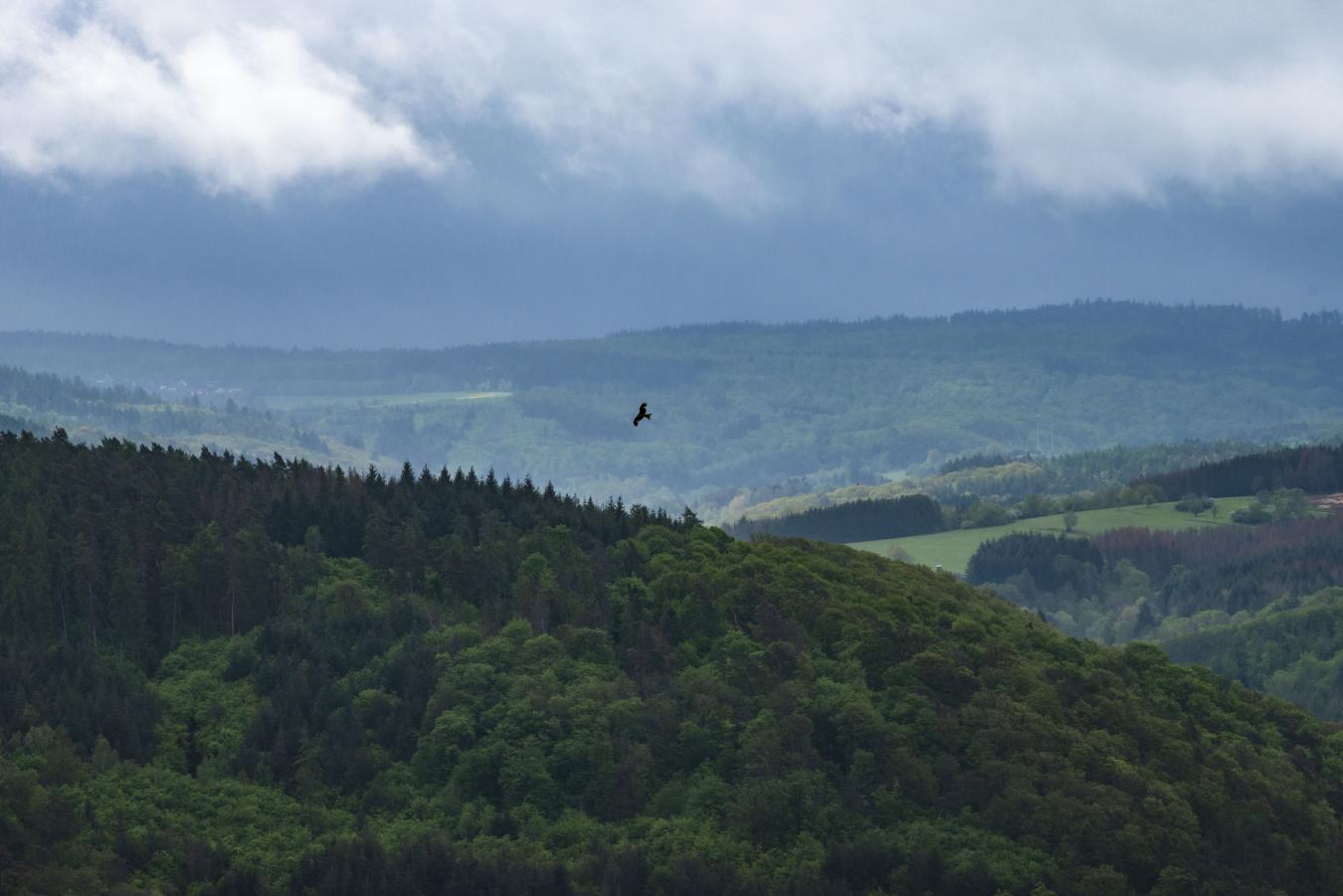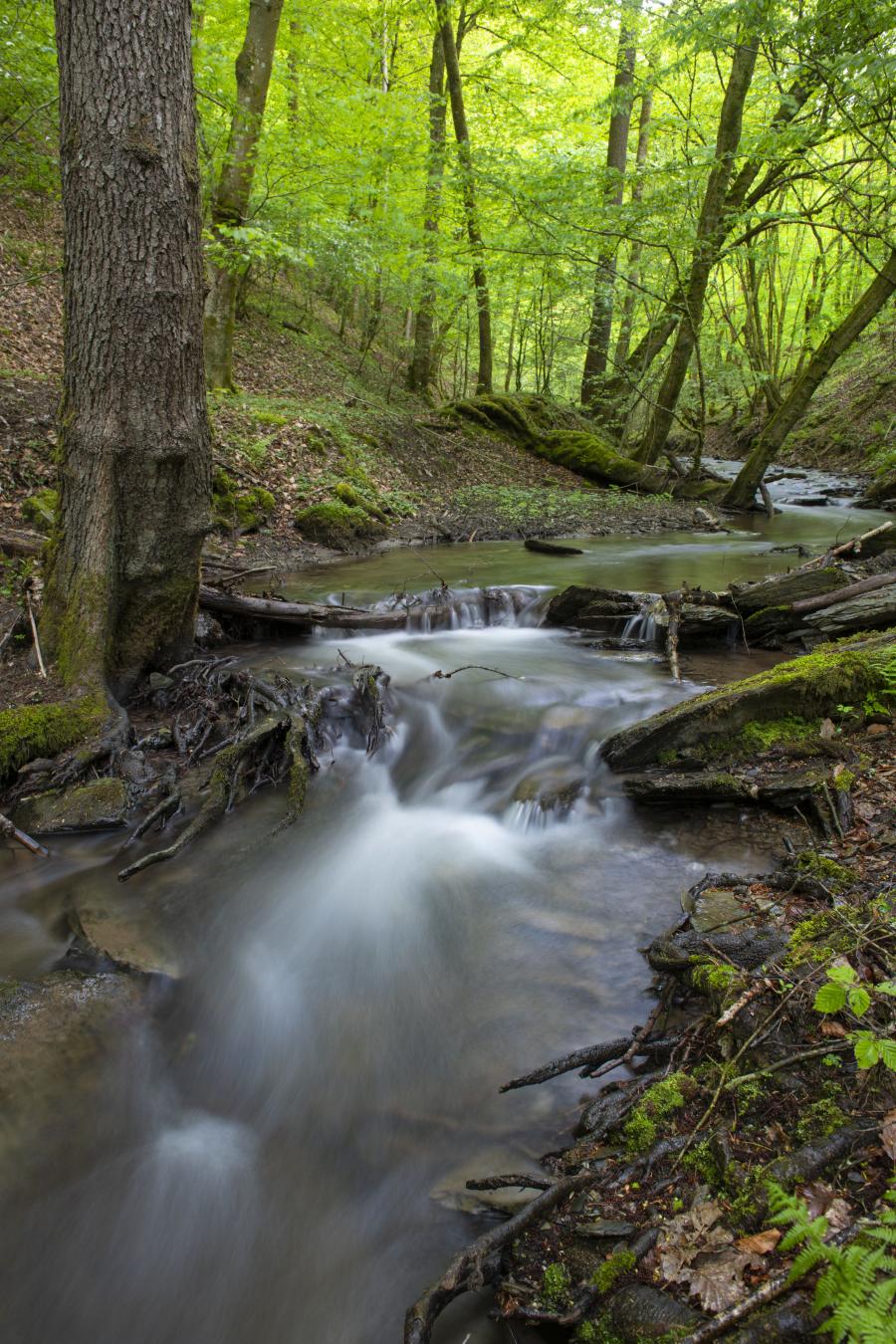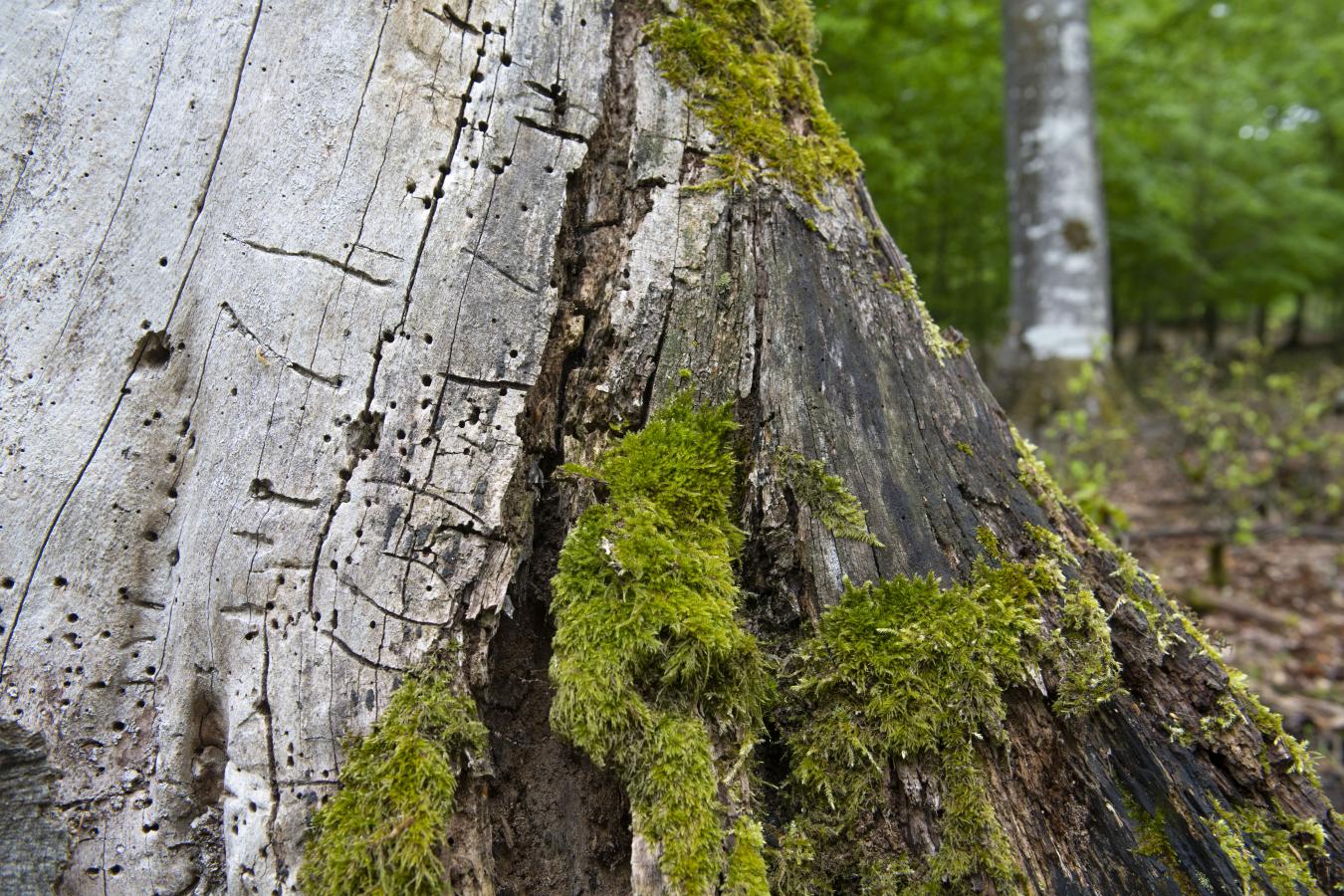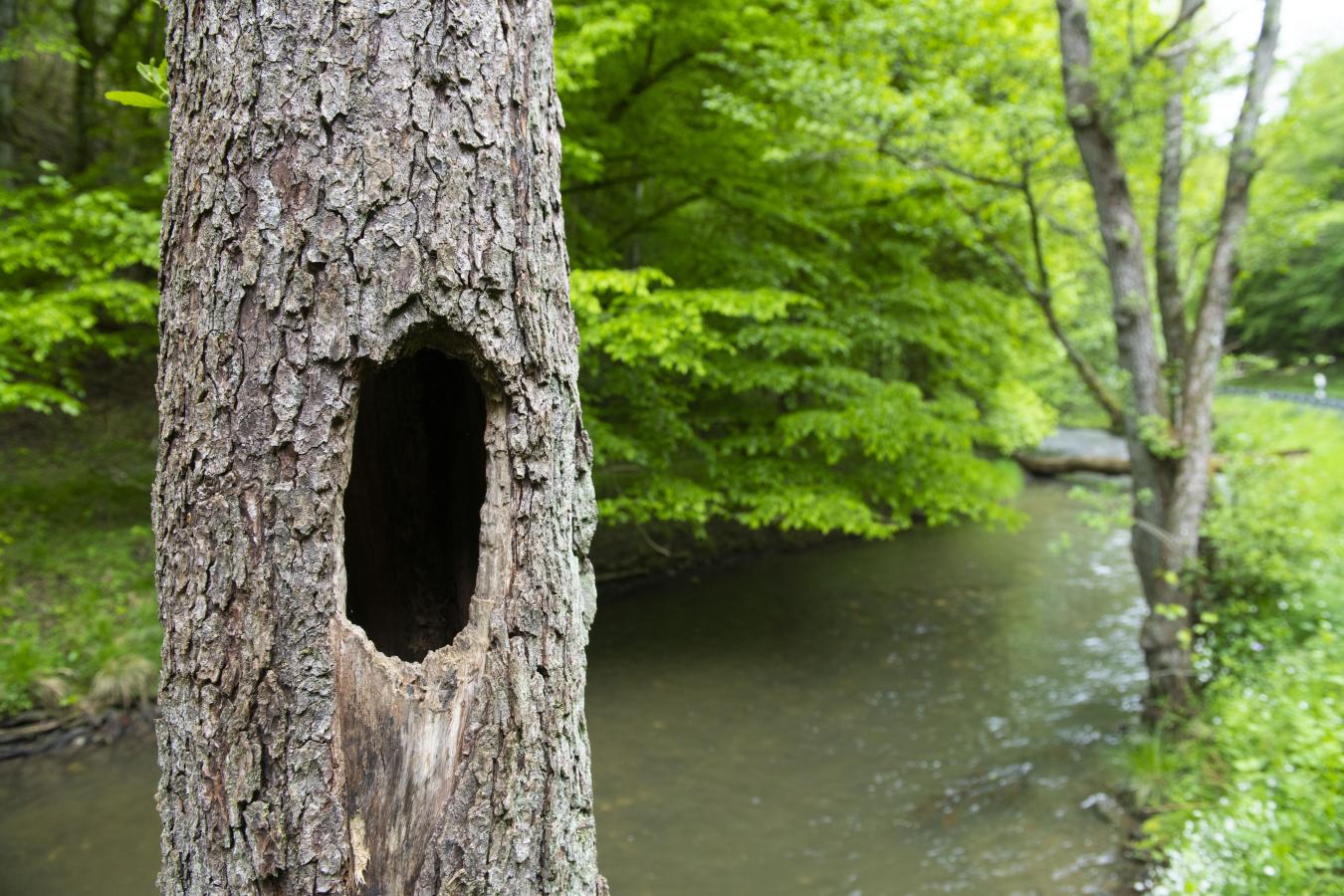Inaugural event for the Wispertaunus large-scale nature conservation project.
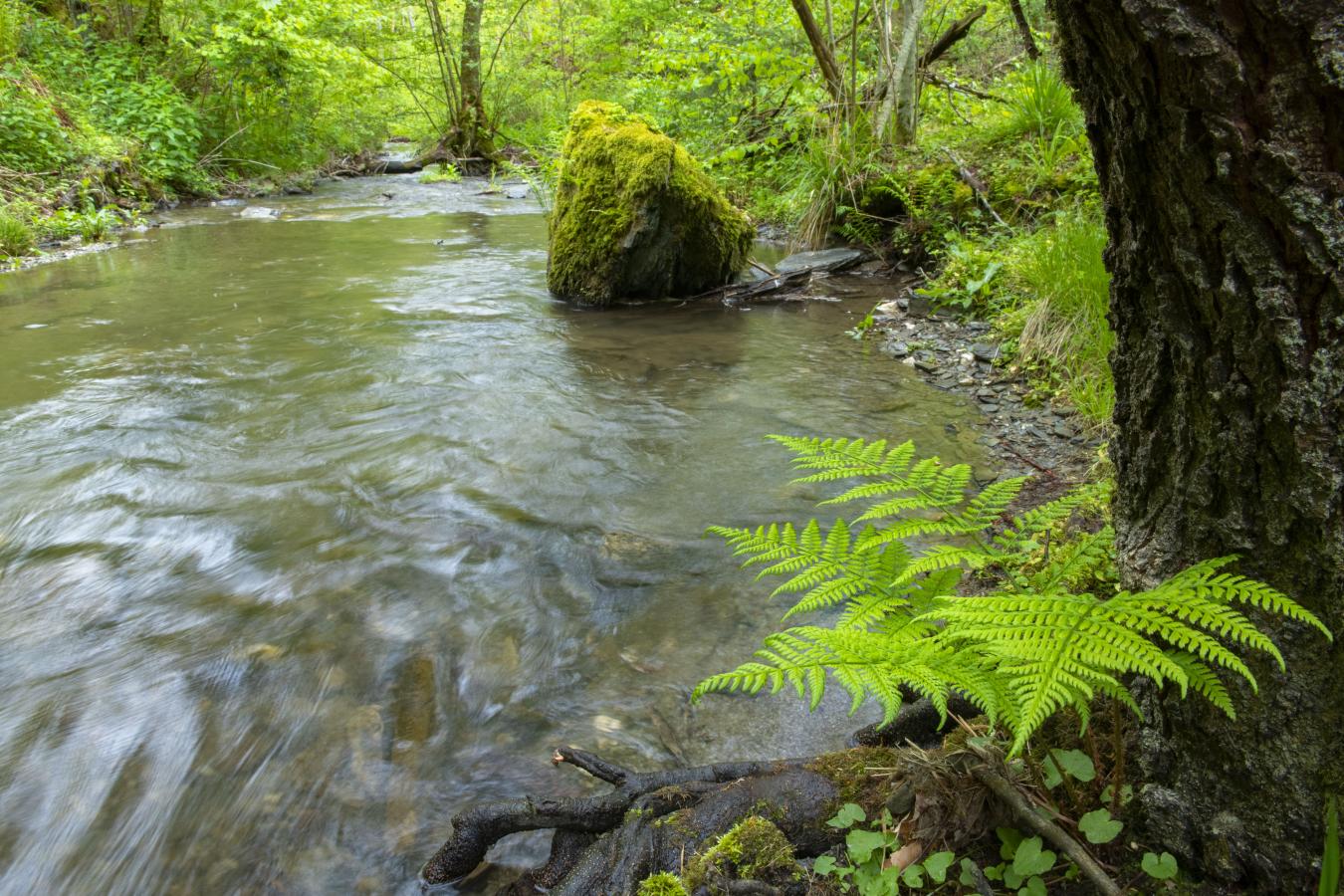
In the Wispertaunus in the Rheingau-Taunus district of southern Hesse, you can find them again – largely untouched forests. The Wispertaunus, with its extensive, near-natural mixed deciduous forests, is part of the largest unfragmented forest area in Hesse. Since 2013, parts of the Hessian state forest have been developing here as so-called natural forests, largely without human intervention. Many rare and endangered animal species such as the Bechstein’s bat, wildcat and dormouse find a valuable habitat here.
As part of the Wispertaunus large-scale nature conservation project, the Frankfurt Zoological Society is planning to expand the existing natural forest development areas in the Hessian state forest by a further 1,000 hectares of forest land belonging to interested forest owners in order to create a large-scale natural forest network of 2,800 hectares in the long term.
The large-scale nature conservation project is divided into a planning phase and an implementation phase. In the planning phase of the large-scale nature conservation project (2023-2026), the exact scope and boundaries of the area as well as the framework conditions for securing the new natural forests are agreed with the forest owners and the forest administration. Together with interested forest owners, the agreed measures will be implemented in the subsequent project phase 2 (expected from 2027).
- Project: Wispertaunus large-scale nature conservation project (planning phase 2023-2026)
- Goal: Development of a natural forest network with 2,800 hectares
- Planning area: 7,677 hectares
- Project start: 2023
- Project Director: Claudia Hartl
- Website: wispertaunus.org/
- Financing: The Wispertaunus large-scale nature conservation project is funded by the Federal Agency for Nature Conservation with funds from the Federal Ministry for the Environment and the State of Hesse as part of the “chance.natur - Federal Funding for Nature Conservation” program. FZS provides its own contribution.
- Wispertaunus
- Biodiversity strategy
- Milestones
- back to top
Successful project work can only be achieved together. The Frankfurt Zoological Society is therefore working closely with the Federal Agency for Nature Conservation, the Hessian Ministry of Agriculture, the Rüdesheim Forestry Office, the Higher Nature Conservation Authority at the Darmstadt Regional Council, the municipalities of Geisenheim, Heidenrod and Lorch am Rhein, the Rhein-Taunus Nature Park, the hunting community and many other stakeholders to implement the project on site. Interested forest owners can voluntarily contribute their land and receive compensation payments for the development of natural forests or the protection of habitat trees. This offers the opportunity to contribute to the preservation of biodiversity and at the same time to support natural climate protection on our own doorstep.
Within the framework of working groups, the many user and interest groups in the forest are involved in the project work. A wildlife management concept is being developed together with the hunting community. Visitor management is intended to enhance the nature experience for forest visitors and at the same time preserve and create refuges for sensitive species such as the wildcat and the black stork. In addition, individual sections of streams and spring areas will be renaturalized, which will benefit dragonflies such as the sombre goldenring.
The existing biotopes and typical forest species such as wildcats, bats, woodpeckers, deadwood-dwelling beetles and fungi are being examined as a basis for nature conservation work. Based on the scientific findings, particularly valuable forest areas will be identified in order to coordinate the framework conditions for future nature conservation measures such as natural forest development or the protection of habitat trees with the stakeholders concerned. Based on this, a funding framework will be defined with the areas of interested forest owners, within which the agreed measures will be implemented over a ten-year implementation phase with the aim of developing a large natural forest network in the Wispertaunus.
In the national and Hessian biodiversity strategies, Germany and Hesse have set themselves the goal of allowing five percent of the forest area to develop naturally. To date, only 3.1 percent of these so-called natural forests exist in Germany. By developing a large natural forest network in the Wispertaunus, the large-scale nature conservation project is contributing to the implementation of the natural forest targets of the federal government and the state of Hesse.
The project sponsor is the Frankfurt Zoological Society. The project office is located in Lorch am Rhein. As part of the project, FZS coordinates closely with the Federal Agency for Nature Conservation, the Hessian Ministry of Agriculture, the Darmstadt Regional Council, the Rüdesheim Forestry Office, the Rhein-Taunus Nature Park, the Upper Middle Rhine Valley World Heritage Association, the forest owners, the hunting community and other affected authorities, users and interest groups in the region. A project-accompanying working group and working committees advise FZS on project implementation.
The large-scale nature conservation project is divided into two project phases: a planning phase and an implementation phase. In the planning phase (Project I: 2023-2026), FZS works closely with its local partners to develop a maintenance and development plan – which serves as the basis for nature conservation work – and which will be implemented in the subsequent ten-year implementation phase (Project II).
The large-scale nature conservation project is funded by the federal government and the state of Hesse as part of the “chance.natur – Federal Funding for Nature Conservation” program.
The funds for the first phase of the project, amounting to around 1.2 million euros, are covered to 75 percent by the Federal Agency for Nature Conservation with funds from the Federal Ministry for the Environment, and 15 percent by the Hessian Ministry of Agriculture and the Environment. The Frankfurt Zoological Society, as the project sponsor, is contributing ten percent of the costs.
In so-called natural forests, forestry is no longer practiced, e.g. no more trees are felled or planted – the forests develop dynamically on their own. In the long term, natural forest development creates a mosaic of young, old and dead trees with a diverse range of habitats. Many endangered animal species benefit from this, such as the Bechstein’s bat and over 1,400 species of wood beetle, which depend on old and dead trees as a habitat. Natural forests therefore play an important role in preserving biodiversity.
Start of large-scale nature conservation project
Preparation, coordination and approval of the project application for the large-scale nature conservation project Wispertaunus.
Preliminary study to investigate the expansion and connectivity potential of the existing natural forests in the Hessian state forest in the Wispertaunus.






